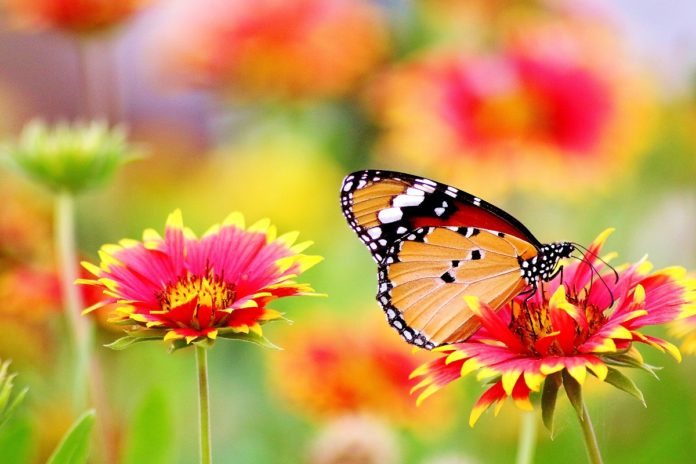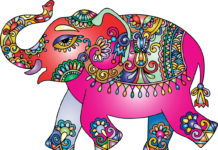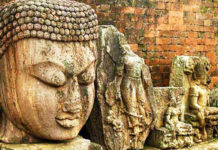Translation by Chenthil Nathan
*
Verse – 5278
Ravana pleading his love to Sita in Asoka Vanam
Many todays have passed; many tomorrows have passed;
Yet this is the mercy you offer me;
Will you become one with me
Only after I pass away
Killed by the misery you cause me?
Tell me, O’ Woman whose reddened eyes cause me grief,
Swinging back and forth to your ear rings.
Translator’s Note:
After Ravana has carried Sita away to Lanka, he has her imprisoned in Asoka Vanam. Hanuman is sent by Rama to find Sita. After reaching Lanka, Hanuman searches around and finally find Sita in Asoka Vanam. While he is there, Ravana comes to plead his love to Sita. That’s where this verse appears.
Ravana tells Sita, “I have waited for many days thinking today will be the day you will accept my love. I have waited for many days thinking hopefully tomorrow will be the day you will accept me. Yet you haven’t accepted my love. This is the mercy you have shown me. Will you unite with me only after you kill me by the pain caused by your refusal? You have been shedding tears thinking of Rama. Hence your eyes are reddened. Frightened on seeing me, those eyes swing back and forth all the way to your ear rings. This is causing me further grief.”
As you can see, Kamban uses sparse words to capture this emotion. I have had to elaborate in my translation to capture all that brevity.
Verse – 3841
Her red painted toes
are corals in her lotus like feet;
She resides forever
in the blooming lotus that’s my heart;
Blossoms adorn her glorious dark braids;
O’ dark blue lily, you are like her eyes!
Then why do you torment me
With the poisonous spread that’s your smile.
Translator’s Note:
Rama and Lakshmana search the forest after Sita has been kidnapped by Ravana. During their search they come to Pampa Lake in Kishkinta. The lake is full of Lotuses. They decide to stay there for the night. The lake and the lotuses remind Rama of Sita. He laments over losing her.
He looks at the blue water lily and says “O’ dark blue water Lily! You are like the eyes of my Sita. She whose red painted toes look like corals grown out of her lotus like soft feet.; she who forever resides in the blooming Lotus of my heart; she whose hair is dark like clouds and is beautifully adorned with flowers. But her eyes would look at my pleasantly with love. But your smile (bloom) is like spreading poison that torments me by reminding of her. Why do you torment me so?”
Sita is the incarnation of Lakshmi who is depicted seated on a Lotus. So Rama says, she forever resides in the Lotus that is my heart.
The Tamil verse uses the word ‘பூத்த’ with multiple meanings – blooming, spreading, applied, growing. This gives a beautiful cadence when you read it out loud.
Verse – 2019
Her plait’s adorned with fragrant powder and pollen,
Her forehead’s curved like a slice of the moon;
He, whose lips lend colour to coral, walks with her –
like a dark cloud and a streak of lightning appearing alone,
like an adorned bull elephant and its cow walking alone.
Translator’s Note:
This verse is in கங்கைப் படலம் (Ganga chapter) when Rama and Sita enter the forest and reach the river Ganga. When Rama leaves Ayodhya, people follow him. So he sends back his chariot to Ayodhya and walks away in the night. People think he has gone back to Ayodhya and follow the chariot marks. Before they realize that they have been misled, Rama and Sita enter the forest and walk south towards Ganga, along with Lakshmana.
Kamban describes them walking by themselves, free of the adoring populace. Sita’s hair is washed with aromatic powders and pollen from flowers and is fragrant. Rama’s lips are strikingly red, it is as if they had lent their colour to coral gemstone. As they walk together, it was like a dark cloud (Rama is dark hued in the epic) and silver lightning appearing together in the vast sky. It was like a bull elephant walking with its cow, undisturbed in the forest.
Elephant’s walk is a repeatedly used simile in Tamil literature for graceful walking. As always with Kamban’s Tamil verse, read it out loud to appreciate the cadence.
(Note: The verse numbers mentioned above pertain to the verse numbers in Kamba Ramayanam)
Acknowledgement:
Republished from https://oldtamilpoetry.com/tag/kambaramayanam/
Translator’s permission to reproduce gratefully acknowledged.



















